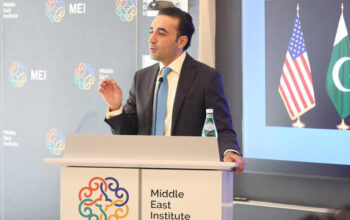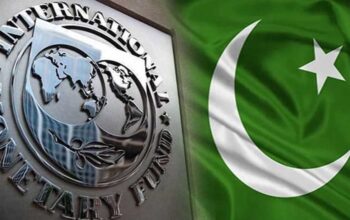By Staff Reporter
ISLAMABAD: Pakistan’s ability to secure loans from bilateral and multilateral partners will be severely constrained until a new program is agreed with the International Monetary Fund (IMF), ratings agency Moody’s Investors Service said on Thursday.
The IMF has been in talks with Pakistan on the ninth tranche of a $6.7 billion bailout package since last year. The program will expire in end June.
“Whether Pakistan will join another IMF program may only become clear after elections, which are due by October 2023,” Moody’s said. “Negotiations for any future IMF program would also take some time, even if they succeed.”
Pakistan’s external debt repayment will remain high for the next few years, with about $25 billion of repayments due in fiscal 2024, while foreign exchange reserves are very low at $3.9 billion as of June 2.
The country is unlikely to access market financing at affordable costs, either from eurobonds or commercial banks, in the foreseeable future, Moody’s said.
The government is considering rescheduling bilateral debts, but it does not plan to approach the Paris Club or multilateral partners to reschedule their debt.
“Under our definition, a suspension of debt service obligations only to official creditors is unlikely to have direct rating implications,” Moody’s said. “Indeed, such relief would increase the government’s available fiscal resources for essential health, social and infrastructure spending.”
Moody’s said Pakistan’s newly announced budget for fiscal year 2024 lacks major revenue-raising or spending-containment measures to alleviate intense government liquidity pressures.
The budget targets fiscal 2024 tax revenue at 9.2 trillion rupees ($49 billion), up 28 percent from an estimated 7.2 trillion rupees in fiscal 2023.
“Given a lack of new significant revenue-raising measures, the government’s revenue projections rely mainly on the assumption that nominal GDP growth will be high and support an increase in revenue. In the current context, we see significant downside risks to that assumption,” Moody’s said.
A large share of the increase in expenditure goes towards salaries and pensions for government employees, as well as relief measures for households and businesses.
Moody’s said it considers the deficit estimates and growth projections to be optimistic, given the stresses the economy is facing, in particular government liquidity and external vulnerability pressures, exacerbated by the severe floods of August 2022 that will continue to weigh on economic activity over fiscal 2024.
Copyright © 2021 Independent Pakistan | All rights reserved




